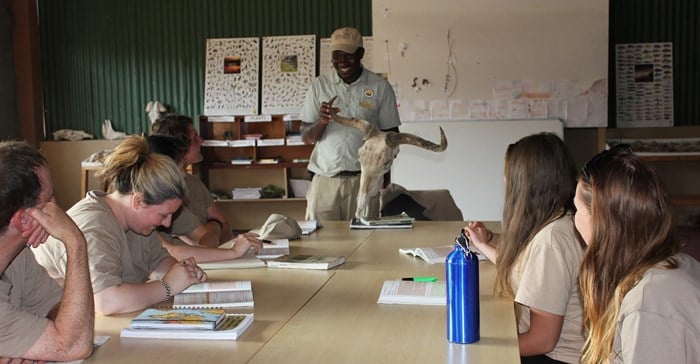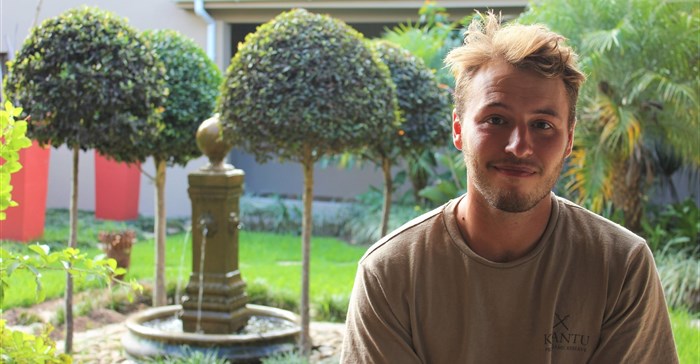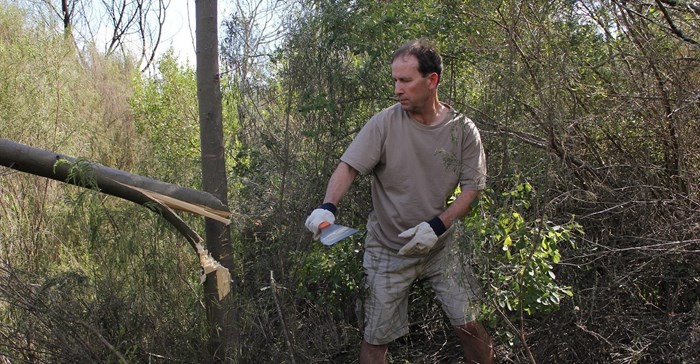Kwantu Private Game Reserve's volunteer programme is drawing visitors from across the globe to participate in real life safari training. Proving popular with youth travellers and tour operators, the Kwantu programme teaches wildlife conservation initiatives.

Kwantu education
It is a holistic eco-voluntourist programme offering hands-on experience in earth stewardship, conservation management and community development. It offers adventure travellers the opportunity to work alongside wildlife staff and game rangers in the 6,000 hectares, privately owned game reserve. In addition to its wildlife rehabilitation and education centre for injured, orphaned and abused African wildlife and an elephant sanctuary, this year Kwantu Private Game Reserve will be launching two new conservation initiatives.
The first is a scientific research facility for buffalos, and the second is a rhino horn anti-poaching protection, surveillance and security patrol training and skills development programme that will provide employment for unemployed youth in the Eastern Cape.
Shakir Jeeva, CEO of Kwantu Private Game Reserve, said rhino poaching is a major conservation issue in the Eastern Cape. “Last year in South Africa 1,175 rhinos were killed by poachers, resulting in a casualty rate of 22 rhinos a week which wiped out 4,9% of Africa’s rhinoceros population in one year,” he said.
“We are confident the programme will strengthen anti-poaching efforts in the province, and there will most certainly be cross-pollination between endangered wildlife protection, and our conservation volunteer programme,” he said. The volunteer package is designed to offer full conservation related projects as well as hands-on reserve work. Volunteers are exposed to, among other things, game capture, game counts, fence patrols, removal of alien vegetation, planting of indigenous trees, wildlife structure enrichment and anti-poaching efforts. There is also an eight-week game ranger course accredited by the Field Guide Association of South Africa (FGASA) on offer.
Dream trip:
Sam Hersh from the UK is a volunteer at the five-star Kwantu Private Game Reserve in the Eastern Cape.
Sam Hersh from Reading in the UK started volunteering at Kwantu on 25 January this year and will be leaving for home at the beginning of June. Hersh is a history graduate from Swansea University. Travelling Africa is a dream come true for him. “I always wanted to come to Africa. When I was younger I enjoyed reading Wilbur Smith books. After I graduated I did not want to do a basic volunteer programme, so instead I opted for a game ranger course. I am so glad I came to Kwantu. I have learned a lot about animals,” he said.
“The Eastern Cape is fairly different to what I expected. It has a unique ecology and society. I thought it would be a lot more arid. But it is lovely,” said Hersh.
When Hersh completes his volunteer programme at Kwantu he will be a qualified field guide.
Tree felling:
Ian Rose from Bath in the UK is busy clearing alien vegetation at the Kwantu Private Game Reserve located in the Eastern Cape. Rose is a volunteer at the game reserve.
Another volunteer, Ian Rose, from Bath in the UK said he went on many safaris while growing up in Kenya. “I got to enjoy wildlife when I was very young. Coming to Kwantu is an adventure for me,” he said. Rose works as a marketing analyst for a major mining company in the UK and highly recommends the Kwantu Game Reserve’s volunteer programme to other professionals as the ideal getaway.
Rose was helping his son Cameron organise a gap year break before attending University College London when he read online about the Kwantu volunteer programme. His description of a typical Kwantu day as a volunteer will leave any adventure seeker yearning for a day on the reserve. Once they have completed their modules, volunteers spend time on the reserve identifying the animals or plant species covered in their lessons. “I look forward to graduating as a field guide."











































